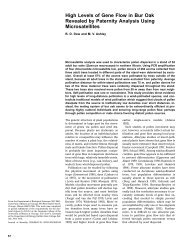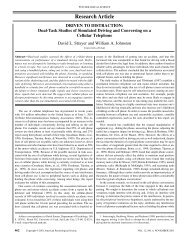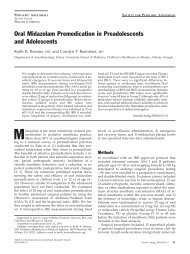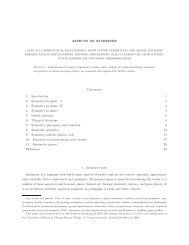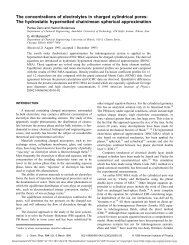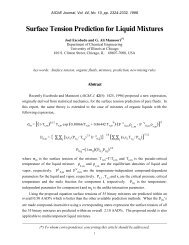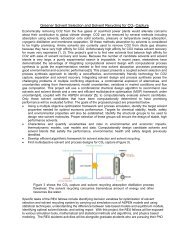Repeating Lenin by Slavoj Zizek
Repeating Lenin by Slavoj Zizek
Repeating Lenin by Slavoj Zizek
Create successful ePaper yourself
Turn your PDF publications into a flip-book with our unique Google optimized e-Paper software.
<strong>Repeating</strong> <strong>Lenin</strong> <strong>by</strong> <strong>Slavoj</strong> <strong>Zizek</strong><br />
9/20/11 2:53 PM<br />
There is a long literary tradition of elevating the face to face encounter with an enemy soldier<br />
as THE authentic war experience (see the writings of Ernst Juenger, who celebrated such<br />
encounters in his memoirs of the trench attacks in World War I): soldiers often fantasize about<br />
killing the enemy soldier in a face to face confrontation, looking him into the eyes before<br />
stabbing him. The singular experience of humanity occurs when the mystique of such a face to<br />
face encounter is rendered meaningless. The same sublime moment of solidarity took place in<br />
the battle for Stalingrad, when, on New Year’s Eve of December 31 1942, Russian actors and<br />
musicians visited the besieged city to entertain the troops; the violinist Mikhail Goldstein went<br />
to the trenches to perform a one-man concert for the soldiers:<br />
“The melodies he created drifted out through loudspeakers to the German trenches and the shooting<br />
suddenly ceased. In the eerie quiet, the music flowed from Goldstein’s dipping bow.<br />
When he finished, a hushed silence hung over the Russian soldiers. From another loudspeaker, in<br />
German territory, a voice broke the spell. In halting Russian it pleaded: ‘Play some more Bach. We<br />
won’t shoot.'<br />
Goldstein picked up his violin and started a lively Bach gavotte."37<br />
This same experience of humanity, of the meaninglessness of the conflict we are engaged in,<br />
can also take a much more mundane shape, that of a simple exchange of gazes which tells<br />
everything. During one of the anti-apartheid demonstrations in the old South Africa, when a<br />
troop of white policemen was dispersing and pursuing black demonstrators, a policeman was<br />
running after a black lady, a rubber truncheon in his hand. Unexpectedly, the lady lost one of her<br />
shoes; automatically obeying his “good manners,” the policeman picked up the shoes and gave it<br />
to her; at this moment, they exchanged glances and both became aware of the inanity of their<br />
situation — after such a gesture of politeness, i.e. after handling her the lost shoe and waiting for<br />
her to put it on again, it was simply IMPOSSIBLE for him to continue to run after her and to hit<br />
her with the truncheon; so, after politely nodding at her, the policeman turned around and<br />
walked away... The moral of this story is NOT that the policeman suddenly discovered his<br />
innate goodness, i.e. we are NOT dealing here with the case of natural goodness winning over<br />
the racist ideological training; on the contrary, in all probability, the policeman was — as to his<br />
psychological stance — a standard racist. What triumphed here was simply his “superficial”<br />
training in politeness.<br />
When the policeman stretched his hand in order to pass the shoe, this gesture was more than a<br />
moment of physical contact. The white policeman and the black lady literally lived in two<br />
different socio-symbolic universes with no direct communication possible: for each of the two,<br />
the barrier which separated the two universes was for a brief moment suspended, and it was as if<br />
http://www.marxists.org/reference/subject/philosophy/works/ot/zizek1.htm<br />
Page 24 of 57



